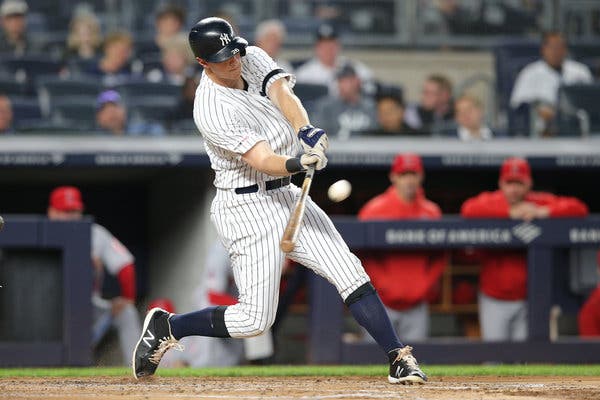
Interview with University of South Carolina Coach Stuart Lake
May 17, 2021
TUNNELING PITCHES AND READING HITTERS
May 19, 2021Evaluating a Hitter
By: Brendan Dougherty
Want College Exposure? Sign-up for our Summer Showcase June 29!
What does a good hitter look like? Evaluating a hitter can be extremely easy at times. You watch a guy hit and he produces in the box much of the time. It can also be difficult at times because the hardest thing to do in sports is to hit a baseball. We are consumed especially on social media with swing mechanics. Much of that information can be useful and a hitter’s swing mechanics are a particularly important part of what makes a good hitter. They are not the only part. When college coaches or professional scouts are evaluating hitters, they are evaluating the total hitter not just what his swing looks like or what his results were that day. Mechanics and results are down the list for many college coaches and pro scouts. The evaluation process is based on many different things and it starts from when you first arrive at the field. Coaches and scouts want to see how a hitter prepares for games. They will watch them take Batting Practice either in the cage or on the field. They will evaluate what they are doing in the dugout preparing for the at-bat. They will evaluate what they are doing in the on-deck circle. They evaluate how they react to success, but they really want to see how they react to failure. We all know Baseball is a game of failure and how you respond to that failure is key to how good a hitter you are going to be. We all know what a hitter will look like when they are 3 for 3 it is how they handle going 0 for 3 and what they will do in there last at-bat is what separates the good hitters from the great hitters.
Here is a breakdown of what many coaches and scouts are looking for when they are evaluating hitters. Beauty is always in the eye of the beholder. What one coach may see in a hitter another coach may see something completely different.
- Zone Discipline- The ability to have a feel for the strike zone and hitting balls hard within that zone. Knowing and understanding what pitches a hitter will success with and not swinging outside of that zone.
- Feel for the Barrel- The ability to get the barrel on the baseball consistently. Does the hitter make solid contact most of the time? If they do then you will probably have a hitter that will be rather good their entire career.
- Rhythm-Timing-Tempo- The ability to be in rhythm and on time for every pitch. Adjusting as the game moves along. The pitcher’s job is to disrupt that rhythm and timing. A hitter’s job is to adjust to that.
- Swing and Miss- Does the hitter swing and miss more than they make solid contact. As you move up each level hitters that have zone discipline and feel for the barrel are typically the ones that have success. The hitters that have power but do not have great ball to bat skills will struggle especially as the pitching gets better.
- Baseball IQ- The ability to know and understand the situation you are in as a hitter. Are you thinking about what you are trying to accomplish when you get into the box? Many people like to call this an approach!
- Mechanics- What the hitters swing looks like when the game speeds up. We hear the phrase “5 o’clock hitter for a 7 o’clock game” Does the swing work when the speed of the game picks up.

